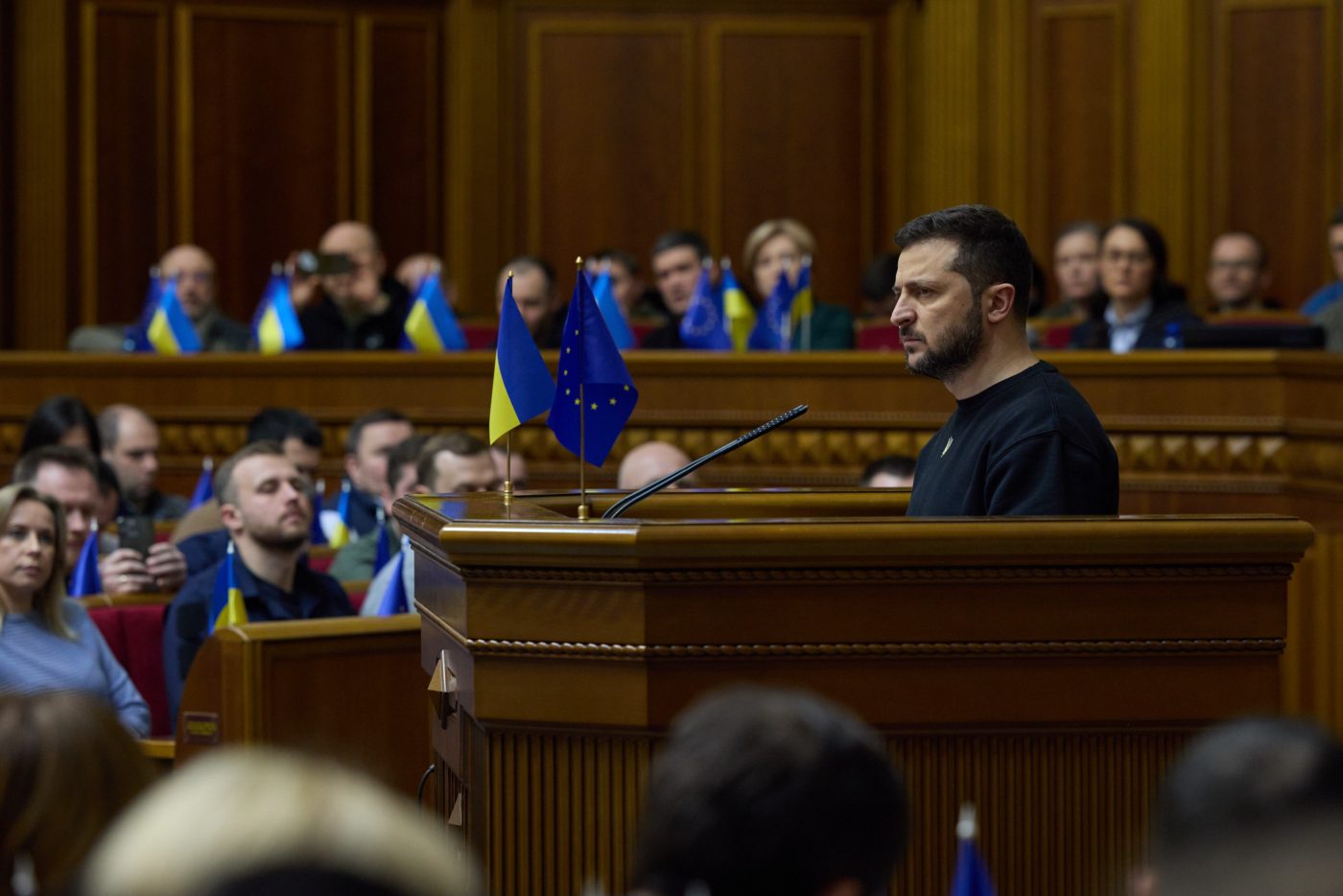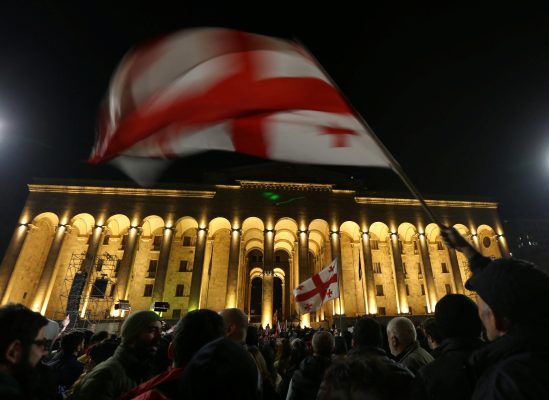It may be years before we discover how many Ukrainians have died to save their country from erasure by Russia, but the numbers will be horrific. US estimates suggest at least 25,000 service personnel have died and 75,000 have been wounded, while local authorities estimated the toll in the single city of Mariupol at more than 20,000 killed.
When the smoke finally clears, the survivors will ask the question posed by armies and civilians throughout the modern age — what did they die for?
The idea of change is likely to be very high on their list of demands. Ukrainians have fought to save their country and yet very few think the pre-war state represented a golden age of government. Reports have long stated that Ukraine is deeply corrupt, albeit not quite on par with Europe’s most graft-ridden state, Russia. The super-wealthy class of wealthy Russians, the so-called oligarchs, have their counterparts in Ukraine too. Their economic influence, won in the chaos of Soviet collapse, remains.
Every measure of public opinion suggests Ukrainians have had enough. In an eye-catching finding last summer, polling by the International Republican Institute discovered that (perhaps predictably) the greatest concern for the population over the next decade was to restore Ukraine’s territorial integrity (49%.) But almost the same number, 48%, said they wanted to eradicate graft.
So the scandals around various Ukrainian government offices in recent weeks have not surprised Ukrainians, but it is likely to have generated deep anger.
Reports of officials with stacks of cash hidden in sofas, of luxury cars and watches, of contracts for service personnel food that existed only on paper and bulletproof jackets that didn’t stop bullets do very obvious damage to Volodymyr Zelenskyy’s administration, not only among its own people but among Western donors and publics financing the Ukrainian war effort.
That goes a good way to explain the urgency of the government’s reaction. It not only approved raids by the SBU, the country’s counter-intelligence service, but also the arrests, dismissals, and publicity that followed.
The scandal has even enveloped Ukraine’s defense minister, Oleksii Reznikov, who is now expected to be moved and replaced with a 37-year-old military intelligence officer, Kyrylo Budanov.
The crackdown began on January 22 with the dismissal of the Deputy Minister of Infrastructure and Communities Development, Vasyl Lozynskiy. He was arrested and accused of stealing $400,000 earmarked to purchase sorely needed items, including generators. If he is found guilty, he will face up to 12 years in prison. On January 23, President Zelenskyy followed up with a series of senior personnel changes across the government, pledging to crack down on corruption at all levels. The following day, the Presidential Office announced the resignation of Kyrylo Tymoshenko, deputy head of the President’s Office, who had been accused of misusing a vehicle donated for humanitarian purposes. The Cabinet of Ministers continued the purge, dismissing six deputy ministers and five heads of regional military administrations on January 24.
The defense ministry was soon implicated, with an investigative report by the local media outlet ZN.UA claiming that prices for the purchase of food for Ukraine’s Army were two to three times above retail prices, raising concerns of potential kickbacks to officials.
Vyacheslav Kapovalov, the deputy minister responsible for overseeing logistical support for the army, tendered his resignation and was subsequently detained by court order for 60 days. Initially, Reznikov dismissed the news as “manipulations” and launched a security service inquiry to uncover the identity of who leaked the contract details. On February 5 however, Reznikov announced during a briefing that he was prepared to resign from his post if ordered to do so by President Zelenskyy.
The disclosures brought a strong response from the European Commission which stated: “Ukraine is of course expected to further strengthen the fight against corruption, in particular at a high level through proactive and effective investigations, and a credible track record of prosecutions and convictions.”
Further action followed. The president announced in late January that government officials “will no longer be able to travel abroad for vacation or other non-governmental purposes.” Deputy Prosecutor General Oleksiy Symonenko, who had spent time vacationing in Spain, quit at the same time. Zelenskyy stated that “If they want to rest now, they will rest outside the public service.”
Meanwhile, the residence of the businessman Ihor Kolomoisky, a former political ally of Ukraine’s president, was raided; indicative of the extent of the crackdown. Vasyl Maliuk, head of Ukraine’s state security service, declared that corrupt officials, Russian agents, and those threatening the nation’s security were in his sights and that “dozens” of operations were underway. “Every criminal who has the audacity to harm Ukraine, especially under war conditions, must understand clearly that we will put him in handcuffs.”
A petition with 25,000 signatures — enough to require Zelenskyy to respond — demanded the resumption of asset declarations for Ukrainian officials, something suspended when Russia’s all-out invasion began. The petition’s author, anti-corruption activist Oleksiy Hrytsenko, emphasized the need to expose and punish corrupt officials during the war while “Ukrainian soldiers are sacrificing their lives for their homeland.”
However, any Russian hopes that the scandal would affect military aid to Ukraine appear unfounded. US auditors have met senior Ukrainian ministers and the US Treasury Department stated that no evidence was found of any misappropriation of the financial aid extended to Ukraine by the United States.
It’s crystal clear that the war against Russian invaders and the battle against corruption is part of the same struggle, to build a new Ukraine worthy of its sacrifice.
David Kirichenko is a freelance journalist covering Eastern Europe and an editor at Euromaidan Press. He can be found on Twitter @DVKirichenko.
Europe’s Edge is CEPA’s online journal covering critical topics on the foreign policy docket across Europe and North America. All opinions are those of the author and do not necessarily represent the position or views of the institutions they represent or the Center for European Policy Analysis.





